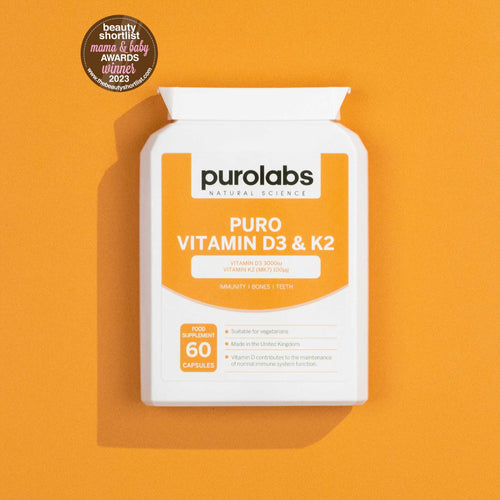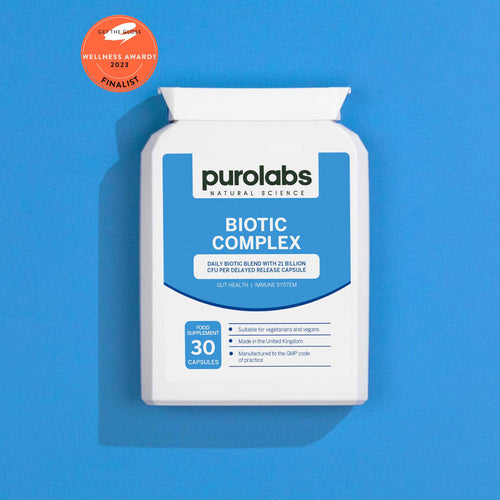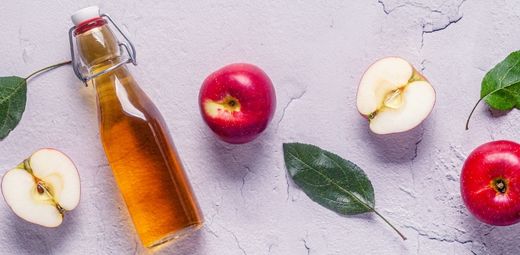As the season changes, we welcome long cosy evenings, log fires, our favourite knits and all things pumpkin spiced…pure joy.
The autumn season also brings a few coughs and sniffles with it, however strengthening our immunity during this period can help prevent us from contracting a cold or two.
Our immune system is incredible. It helps us to fight any outside ‘invaders’ entering our body, from environmental chemicals and pollutants to moulds, pathogenic bacteria and of course viruses.
The immune system also helps us internally to mop up oxidative damage to keep us healthy and age well, along with helping our body to heal after physical trauma. It also works as a body ‘security doorman’ to destroy any abnormal cells which show early signs of trouble or abnormal growth, on a daily basis1.
If you’re looking for a few handy top tips to help give your immune system a generous boost in time for Autumn, read on…
Increase Vitamin D Intake
Change in weather, particularly in the northern hemisphere in colder months means we are absorbing and converting less vitamin D via UV light2.
Vitamin D is a fundamental nutrient which is absolutely necessary for immune system health. The NHS universally recommends supplementing with vitamin D during colder months (particularly between October and March) as we simply do not get enough sunlight here in the UK3.
Vitamin D also helps boost our immunity in various ways4,5,6:
- Vitamin D modulates our immune response, meaning it helps our body to act on any external ‘danger’ or threat
- Helps to support auto-immune diseases
- Has anti-teratogenic effects, meaning it helps promote healthy cell function
- Boosts skin health’s function as the outside protective layer from ‘foreign’ invaders
The government recommends that we all supplement with 10mcg vitamin D daily for the above health benefits7.
Purolab’s Vitamin D supplement contains above the daily recommended dose and also contains K2, which is required to help vitamin D absorption by the body’s tissues to be utilised.

Vitamin D3 & K2
Get Outside More
Yes I’ll admit, getting outside might feel a little less appealing than it is during the summer months, however taking a walk in nature has been shown to help support our nervous system to manage stress better, and a stressed individual is an immune compromised one.
A study8 tracked two biomarkers of stress (cortisol and alpha-amylase) in a sample group and measured their stress levels pre and post nature walk. Both stress biomarkers were markedly reduced, and participants noted an increased sense of wellbeing.
Social isolation is also more common during colder seasons and studies have shown that there is a direct link between social isolation and stress9. Loneliness has been shown to increase stress and leave our immune system vulnerable to the environment around us.
So, my very top tip is to ensure that no matter the weather, you are still enjoying as much time with your loved ones (inside and outside) as you did during the summer months, to boost immune health.
Adopt a Regular Bedtime Routine
Sleep helps the immune system in the same way that stress-reduction techniques do. It reduces the nervous systems response to set off ‘triggers’ for the immune system to respond to, to perceived threats aka our fight or flight response.
If our fight/flight response is chronically triggered, this can exhaust our immune system and have it ‘fighting’ non-threats, when it could be dealing with other internal processes that need support.
Sleep also helps the body to repair and ‘reset’ for the next day. Our circadian rhythm, which is our internal body clock, has a strong mediating influence on the immune system. If our sleep patterns follow natural sleep and waking hours, it positively impacts immunity10.
Consider adding a few of these steps into your daily bedtime routine. It is important however to keep your bedtime routine simple and easy to implement to help reduce stress. If your routine has too many steps, it can be overwhelming, unsustainable and stressful; not ideal for immune health!
- Keep a regular bedtime and wake up time for your body to attune to its circadian rhythm.
- Remove exposure to blue light devices (iphone/ipad/laptop etc) 60 minutes before bedtime. Blue light blocks melatonin, which is the hormone that signals to us that it’s time for bed. Exposure to blue light before sleep will impact sleep quality11.
- Ensure that your bedroom is well ventilated, dark, and cool to provide optimal conditions for a restful sleep.
- Perhaps read a book in bed to help take your thoughts away from the day.
- Journalling is also a great tool to help ‘organise’ your thoughts before you sleep. I find journalling to be a thought ‘bin’ of sorts, to help empty your brain of life’s to-do lists before sleep.
Increase the Colour on Your Plate
Our body required a range of nutrients to help support our immune system:
A, D, C, E, B6, and B12, folate, zinc, iron, copper, and selenium.
This, quite extensive list of nutrients can only be absorbed efficiently if our microbiome and digestive tract are functioning correctly.
If digestion, for example is impaired, then the nutrients ingested cannot be metabolised by the gut to then be utilised by our tissues and immune cells. Microbiome health plays a significant role in this process as microbes do help with the nutrient metabolism process12. If our microbiome is thriving and filled with happy, diverse micro-organisms then nutrient absorption is optimal.
If we have an imbalanced microbiome, with an over proliferation of bad bacteria or not enough of the good guys, then this needs to be addressed.
Probiotics are particularly useful to help boost microbiome health, alongside a varied diet full of rich colourful wholefoods.

Biotic Complex
A range of nutrients are also required to help strengthen the gut lining. Intestinal permeability aka ‘leaky gut’ has been shown as a potential cause for some auto-immune conditions. Leaky gut is a process involving food proteins exiting tiny tears in the GI tract and entering our blood stream, causing a range of inflammatory ‘auto-immune’ reactions13.
Stay Hydrated
Although hydration doesn’t directly affect immune health, we require adequate water intake to boost nutrient absorption and to keep our cells hydrated and performing optimally.
Being hydrated also reduces fatigue, physical performance, cognitive performance, mood, sleep which all impact the immune system through added stress it takes on the body.
My recommended daily water intake to help keep you hydrated is 1.5-2 litres water daily, minimum. This doesn’t include caffeinated beverages or highly processed/sugar rich drinks.





















